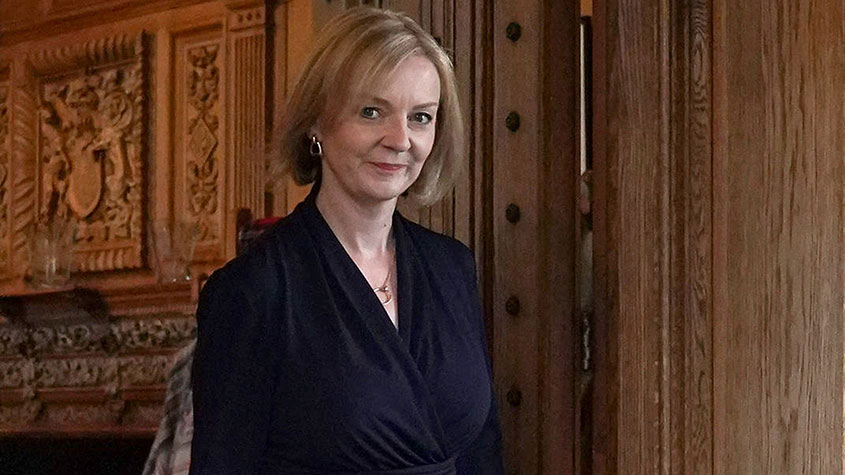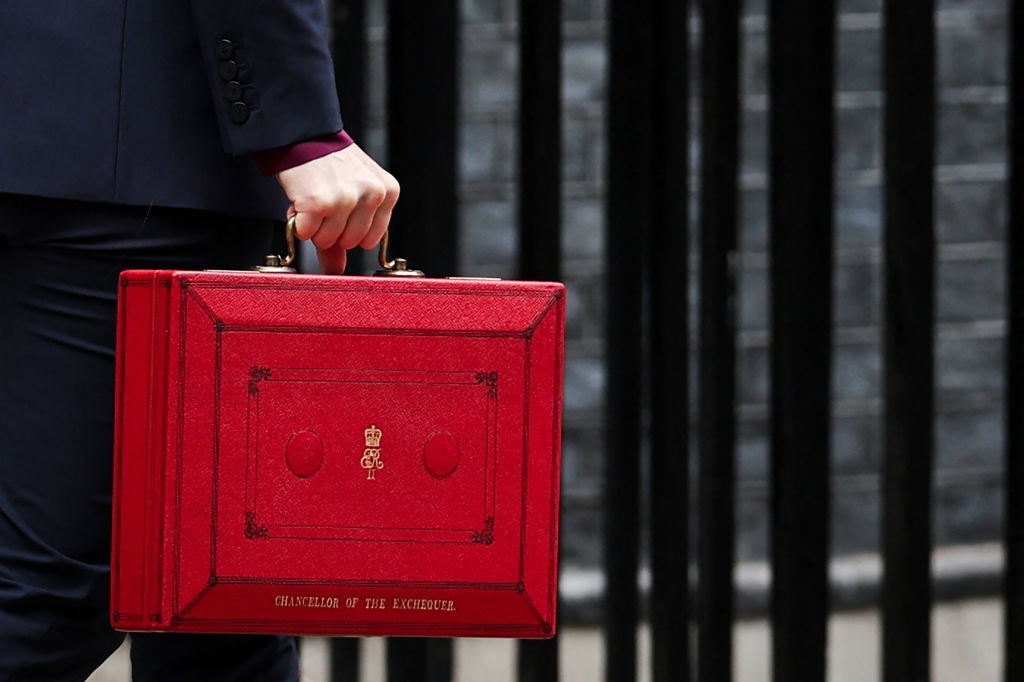What Liz Truss could mean for your money: the good, the bad and the ugly
Liz Truss, the new prime minister, has promised deal with the country’s growing list of problems. She's got her work cut out, says Rupert Hargreaves. Here, he looks at some of her proposed changes.


Get the latest financial news, insights and expert analysis from our award-winning MoneyWeek team, to help you understand what really matters when it comes to your finances.
You are now subscribed
Your newsletter sign-up was successful
Want to add more newsletters?

Twice daily
MoneyWeek
Get the latest financial news, insights and expert analysis from our award-winning MoneyWeek team, to help you understand what really matters when it comes to your finances.

Four times a week
Look After My Bills
Sign up to our free money-saving newsletter, filled with the latest news and expert advice to help you find the best tips and deals for managing your bills. Start saving today!
Liz Truss has been declared the next prime minister of the United Kingdom, and she’s promised to get straight to work to deal with the country’s growing list of problems.
The new PM is going to have her work cut out to deal with all the issues facing the UK today.
Spiralling energy costs, the rising cost of living, strikes, the creaking NHS and poor public finances are just a few of the tasks the leader has in her inbox.
MoneyWeek
Subscribe to MoneyWeek today and get your first six magazine issues absolutely FREE

Sign up to Money Morning
Don't miss the latest investment and personal finances news, market analysis, plus money-saving tips with our free twice-daily newsletter
Don't miss the latest investment and personal finances news, market analysis, plus money-saving tips with our free twice-daily newsletter
On the campaign trail Truss promised that she would try to revitalise the economy through a range of measures.
Tax cuts, a bonfire of red tape and extra subsidies have been touted, but the PM will have to move carefully.
Public finances are in a dire position and the Office for Budget Responsibility (OBR) has already warned the country can’t really afford extra spending.
This leaves the new leader in a sticky situation. Truss may not be able to push through all the changes she’s promised, making it all the more difficult to predict what (if any) impact changes will have on individuals’ personal finances.
Still, here are some of the changes Truss and her team have proposed so far.
The good
When former chancellor Rishi Sunak announced plans to increase the rate of National Insurance by 1.25% last year, the policy was attacked for hitting taxpayers in the pocket at a time of rising bills.
Designed to tackle the Covid-induced NHS backlog and reform social care, the new levy attracted criticism from MPs across the political spectrum, and it was slammed by economists who argued that the country should not be hiking taxes as it recovered from the pandemic.
Truss has consistently said she would look to reverse the tax hike when in power. According to the Institute for Fiscal Studies (IFS), cutting the levy would boost incomes for all taxpayers, but would benefit higher-income households who have the most income from employment. Figures show the changes would benefit top earners by about £1,800 a year, and the lowest earner by about £7.
Other changes the new PM has promised to look at include the ability for couples in a marriage or civil partnership to shift any of their unused tax free allowance (£12,570 for the current tax year) to their partner. Currently, couples can only transfer 10% of their unused allowance. A cut to income tax has also been touted.
She has also thrown her support behind the pensions triple lock on the campaign trail, although whether or not the government will have the cash available to meet this commitment remains to be seen.
And as well as these personal tax and benefit proposals, there has also been some speculation that the new PM could cut VAT to 5%, following Gordon Brown’s attempt to stimulate the economy after the financial crisis.
Most importantly, Truss has already set out a plan to act on energy prices. The government is looking to cap unit prices for house holds and businesses as part of a package that could cost as much as £150bn.
The bad
The bad news is that these proposals will have to be funded somehow.
Following the pandemic, the UK’s finances are in pretty poor shape, and the prospect of borrowing more money to fund tax cuts is not going down well with the markets. The pound and government bond interest rates have spiked in recent weeks due to the threat of more spending (more on that later).
One of the ways the new PM appears to be planning for these cuts is by shrinking the size of the civil service and government payroll. This could mean job cuts. It could also mean lower pay awards for public sector workers.
There could also be a clampdown on benefit claimants. Truss wants to “fix the benefits system” to push more people into work. That could mean less “handouts” from the government.
The ugly
Policies to subsidise energy and cut taxes might go down well with voters, but they could have some severe consequences for the country in the long term.
This is where things get a bit technical and speculative, so bear with me.
The UK has a large current account deficit meaning it imports more than it exports. As a result, it relies heavily on international investors putting their money into the economy to balance the books.
Investors need to be sure they can trust the economy, government and currency for that to happen.
The problem is that large, unfunded spending plans, coupled with rising interest rates, surging inflation and a weak currency risks putting investors off (some might argue these factors have already put investors off).
Without these capital flows, the value of the pound could fall further – and for every 5% the currency falls against its major trading partners, inflation is pushed up a further 1%. Sterling has already fallen around 15% against the dollar this year, taking it close to the all-time low, just before the country was bailed out by the IMF. A crumbling currency is only adding fuel to the inflation fire.
If sterling remains under pressure, the Bank of England might be forced to push rates much higher than expected, causing more issues for the economy and increasing the cost of government debt.
To put it another way, while Truss’s plans might alleviate some of the economic pain in the near-term, they could lead to more pressure on the pound and higher interest rates. That will mean more expensive holidays, mortgages and personal borrowing. It could also lead to higher taxes in the long term.
Get the latest financial news, insights and expert analysis from our award-winning MoneyWeek team, to help you understand what really matters when it comes to your finances.

Rupert is the former deputy digital editor of MoneyWeek. He's an active investor and has always been fascinated by the world of business and investing. His style has been heavily influenced by US investors Warren Buffett and Philip Carret. He is always looking for high-quality growth opportunities trading at a reasonable price, preferring cash generative businesses with strong balance sheets over blue-sky growth stocks.
Rupert has written for many UK and international publications including the Motley Fool, Gurufocus and ValueWalk, aimed at a range of readers; from the first timers to experienced high-net-worth individuals. Rupert has also founded and managed several businesses, including the New York-based hedge fund newsletter, Hidden Value Stocks. He has written over 20 ebooks and appeared as an expert commentator on the BBC World Service.
-
 Early signs of the AI apocalypse?
Early signs of the AI apocalypse?Uncertainty is rife as investors question what the impact of AI will be.
-
 Reach for the stars to boost Britain's space industry
Reach for the stars to boost Britain's space industryopinion We can’t afford to neglect Britain's space industry. Unfortunately, the government is taking completely the wrong approach, says Matthew Lynn
-
 Is Britain heading for a big debt crisis?
Is Britain heading for a big debt crisis?Opinion Things are not yet as bad as some reports have claimed. But they sure aren’t rosy either, says Julian Jessop
-
 When is the Autumn Budget and what should you expect?
When is the Autumn Budget and what should you expect?Chancellor Rachel Reeves is set to deliver her second Autumn Budget next week – but what exactly does the fiscal event involve?
-
 UK wages grow at a record pace
UK wages grow at a record paceThe latest UK wages data will add pressure on the BoE to push interest rates even higher.
-
 Trapped in a time of zombie government
Trapped in a time of zombie governmentIt’s not just companies that are eking out an existence, says Max King. The state is in the twilight zone too.
-
 America is in deep denial over debt
America is in deep denial over debtThe downgrade in America’s credit rating was much criticised by the US government, says Alex Rankine. But was it a long time coming?
-
 UK economy avoids stagnation with surprise growth
UK economy avoids stagnation with surprise growthGross domestic product increased by 0.2% in the second quarter and by 0.5% in June
-
 Bank of England raises interest rates to 5.25%
Bank of England raises interest rates to 5.25%The Bank has hiked rates from 5% to 5.25%, marking the 14th increase in a row. We explain what it means for savers and homeowners - and whether more rate rises are on the horizon
-
 UK inflation remains at 8.7% ‒ what it means for your money
UK inflation remains at 8.7% ‒ what it means for your moneyInflation was unmoved at 8.7% in the 12 months to May. What does this ‘sticky’ rate of inflation mean for your money?